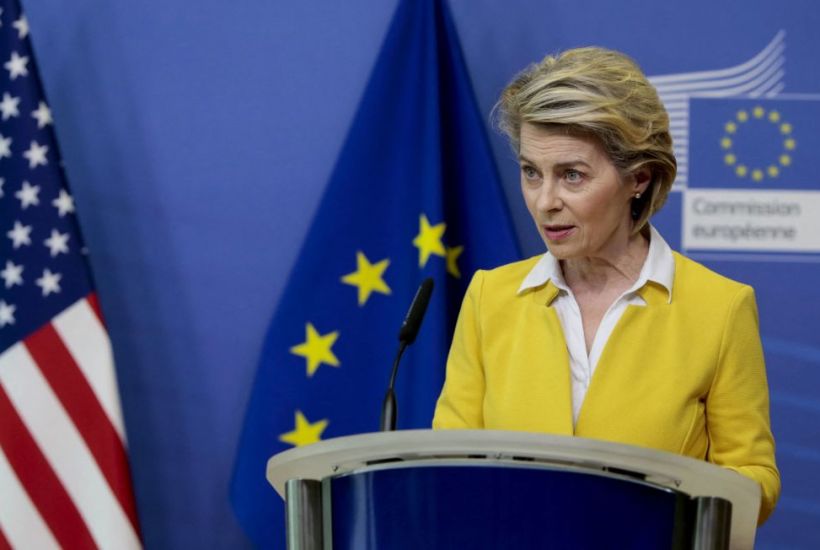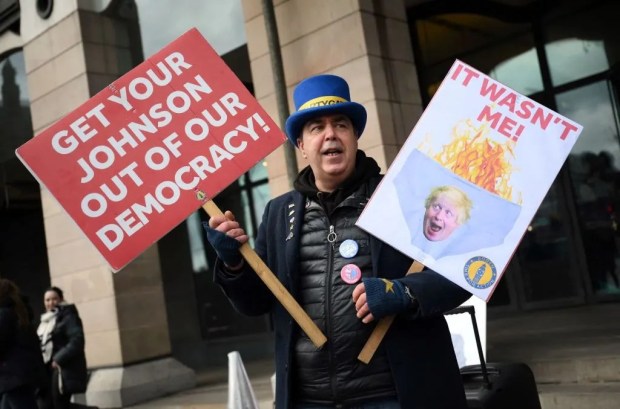The EU is discussing confiscating and requisitioning private property. It is surprisingly brazen about this. The bloc is proposing both a ‘bespoke’ vaccine export ban and has identified 29 million doses in Anagni in Italy which it wants. The EU wishes to rectify its own error in vaccine procurement. That is a breach of the rule of law.
The rule of law is very simple. It means that no one is above the law and there is one law for all. The EU asserts, regularly, that it has a legal case against AstraZeneca. I, and many other legal commentators, rubbished that assertion in January. But as I stated publicly eight weeks ago, if the EU believes it has a case it must bring one – in the perfectly capable and serviceable court in Belgium. That is the court which governs the contract the EU says AstraZeneca has breached.
Instead, the EU has proposed using powers to pass a new law, in its own favour. We don’t know whether they would win a case in Belgium, even if many believe the bloc doesn’t have a case. But we do know they haven’t waited to find out. Just focus on that and change the parties.
Imagine if Boris had a contract with a pizza company to deliver pizzas to Number 10. Imagine that because there was a global pandemic on, the pizza company had said ‘careful now PM, given the risks we might not actually have enough mozzarella, we’d best only promise to use our best reasonable efforts to make these pizzas’. Imagine none turned up. If Boris sued, our courts would reject any case. So imagine the Prime Minister instead brought a Bill asking the Houses of Parliament and the Queen to say all pizzas made in the UK now belong to him.
We might think that to be a grotesque use of power. We might imagine there would be wide public condemnation and a none-too-kind suggestion that the Prime Minister use the courts like everyone else.
Failing to do so and passing a new law to say you win the argument is abhorrent inside our legal system. It is the action of a medieval king. It is a type of intervention in private property rights not seen on the continent since the second world war.
How does this fit with the assertion that the EU is a rules-based organisation? That is unclear. It is not even clear how this fits with the EU’s own laws and international legal commitments. A whole host of laws protect personal property rights, not least of all human rights laws. That is because none of us should live in fear of the state taking our things.
Very occasionally and in a very limited sense which has not been tested in the modern age, there may be a reason for the state to take things which do not belong to it. The flaw here is that this would generally require an emergency. Is there one?
Vaccine supplies lie gathering dust in EU warehouses. No humanitarian crisis has been triggered. No help has been requested. And we might expect help to be asked for because these are not pizzas, they are vaccines for a deadly illness.
Further, the EU’s plan is not to impose a blanket ban or introduce a blanket seizure of property – the stuff you do in an emergency. Instead, it plans to give the Commission the power to selectively seize things which do not belong to it based upon criteria it applies, at whim. That’s not an emergency, that’s shopping.
It is a fiction to paint some countries as hogging all the vaccines while the poor little EU struggles to get to the front of the queue. By signing vaccine deals early, countries like the UK pledged to fund vaccine development. The EU in signing late helped everyone less. The world has less vaccine because the EU failed. The EU has less vaccine because the EU failed.
It is not even clear the EU can use the vaccines it seizes. Because one of the problems the EU has displayed is it often won’t authorise things on time and takes longer to process any paperwork. Whole factories churning out vaccines other countries said were good enough for them did not make vaccines for the EU, because the EU had not yet approved them.
Lawyers across our country will now dread the inevitable question from clients planning to do business in the EU. They will ask, ‘will the EU not simply take our property if it wants to?’
We will have no answer to that question. When a state begins to act this way there is no protection the law can give you – this is why the rule of law actually matters.
Got something to add? Join the discussion and comment below.
Get 10 issues for just $10
Subscribe to The Spectator Australia today for the next 10 magazine issues, plus full online access, for just $10.




















Comments
Don't miss out
Join the conversation with other Spectator Australia readers. Subscribe to leave a comment.
SUBSCRIBEAlready a subscriber? Log in